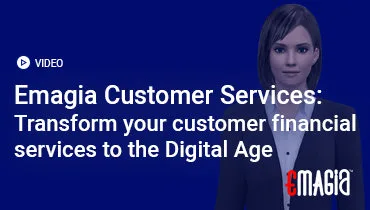Unlocking Cash Flow and Reducing Risk with Professional Debt Recovery
For any business, the journey from providing a product or service to getting paid is fraught with potential pitfalls. Unpaid invoices, late payments, and delinquent accounts are a frustrating reality that can cripple a company’s cash flow and hinder its growth. While many businesses attempt to manage these challenges in-house, there comes a point when a more strategic approach is needed. This is where a professional collections agency becomes an invaluable partner. Far from being a last resort, hiring a collections agency can be a proactive and highly effective business decision. This in-depth guide will explore the many benefits of hiring a collections agency, moving beyond the simple act of debt recovery to reveal how these partnerships can improve your financial health, streamline operations, and protect your business’s reputation.
Part 1: The Financial and Operational Advantages
The most immediate and tangible benefits of hiring a collections agency are financial. However, the advantages extend far beyond simply recouping lost revenue. This section will delve into the core operational and financial improvements that a collections agency can deliver.
- Improved Cash Flow: The primary function of an agency is to recover outstanding debts quickly, which in turn injects much-needed cash back into your business. We will discuss how this positively impacts your working capital.
- Time and Resource Savings: Pursuing delinquent accounts is a time-consuming and often frustrating process. By outsourcing this task, your internal team can focus on core business activities, such as sales, marketing, and customer service.
- Expertise and Efficiency: Professional agencies have specialized knowledge of collections laws and proven strategies. They know how to communicate effectively with debtors while remaining compliant and ethical. This expertise often leads to a higher recovery rate than in-house efforts.
- Reduction in Operating Costs: Managing an in-house collections department requires staff, technology, and legal resources. We will show how outsourcing can be a more cost-effective solution, eliminating the need for these significant overheads.
These advantages highlight how the benefits of hiring a collections agency create a more efficient and profitable business model.
Part 2: Protecting Your Business and Brand Reputation
A significant concern for businesses when considering a collections agency is the potential for damaging customer relationships. However, a reputable agency can actually help protect your brand. This section will focus on the non-financial but equally critical benefits of hiring a collections agency.
- Professional and Ethical Conduct: We will emphasize how a good agency operates under strict legal and ethical guidelines, ensuring that all interactions are professional and respectful. This protects your brand from accusations of harassment or aggressive tactics.
- Access to Advanced Technology: Modern agencies use sophisticated software and analytics to streamline their processes. This includes skip tracing, data analytics, and automated communication tools that ensure a higher success rate.
- Legal Compliance: The world of debt collection is governed by a complex web of federal and state laws, such as the Fair Debt Collection Practices Act (FDCPA). A professional agency is up-to-date on all regulations, protecting your business from costly lawsuits and fines.
- Preserving Customer Relationships: A skilled agency understands the importance of maintaining a positive relationship with a customer. They are trained to negotiate payment plans and resolve disputes in a way that encourages future business if the relationship is salvageable.
These points underscore that the benefits of hiring a collections agency extend to safeguarding your company’s most valuable asset: its reputation.
Emagia’s AI-Powered Collections and Receivables Automation
While hiring a collections agency is a powerful strategy, many of the challenges they address can be prevented from the start. Emagia’s AI-powered receivables platform works proactively to automate and optimize the entire order-to-cash process, significantly reducing the need for third-party intervention. Our intelligent system acts as a virtual collections agent, automating tasks like invoice delivery, payment reminders, and dispute resolution. It uses predictive analytics to identify which accounts are at risk of becoming delinquent and provides your team with a prioritized action plan. By accelerating cash application and facilitating faster payments, our platform helps you maintain a healthy accounts receivable ledger and improves your overall cash flow. This proactive approach complements a collections strategy by focusing on prevention, enabling you to manage your receivables with greater efficiency and control, and thus, minimizing the amount of debt you ever need to pass on to an agency.
Frequently Asked Questions About Collections Agencies
How do collections agencies get paid?
Most collections agencies work on a contingency fee basis. This means they only get paid a percentage of the debt they successfully recover. The fee percentage varies depending on factors such as the age and amount of the debt.
When should a business hire a collections agency?
It’s generally recommended to hire an agency after your internal efforts to collect a debt have been exhausted, usually after 90 to 120 days of the invoice being past due. Early intervention can lead to a higher recovery rate.
What is the difference between a first-party and a third-party collections agency?
A first-party agency works under your company’s name, often to handle early-stage delinquencies. A third-party agency is a separate entity that works under its own name to collect on more seriously delinquent accounts.
Will a collections agency ruin my customer relationships?
A reputable and professional collections agency will be trained to maintain a respectful and professional demeanor. Their goal is to recover the debt while preserving the relationship, if possible. Choosing an agency with a strong track record and ethical practices is key.
What information do I need to provide to an agency?
To be effective, an agency will need detailed information about the debt, including the debtor’s full name, contact information, the amount owed, the original invoice, and a record of your previous collection attempts.
Are collections agencies legally regulated?
Yes, collections agencies are heavily regulated by federal laws like the Fair Debt Collection Practices Act (FDCPA) and various state laws. These regulations are designed to protect consumers from harassment and abusive practices.



